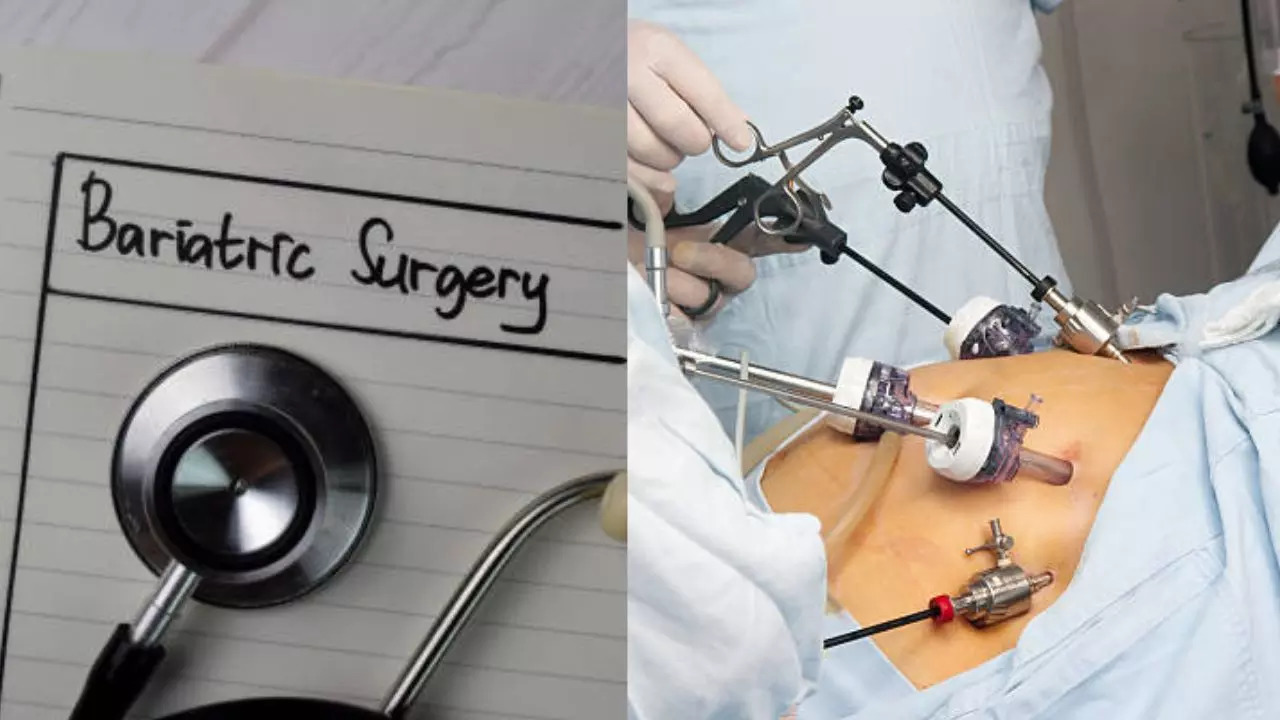-
news
-
Health
This popular weight loss surgery is said to reduce the risk of cardiac arrest! Experts tell how
Obesity and obstructive sleep apnea (OSA) increase the risk of cardiac arrest, with the two conditions usually co-existing. Bariatric surgery, a weight loss solution for severe obesity, can significantly reduce these risks by reducing stress on the heart, lowering blood pressure, and improving sleep apnea symptoms.

This popular weight loss surgery is said to reduce the risk of cardiac arrest! Experts explain how (Image credit: iStock)
obesity It is a growing global health problem, with millions of people facing serious complications, including the risk of cardiac arrest. Many people with obesity also experience blockage sleep apnea (OSA), which increases the likelihood of heart disease, bariatric surgery According to experts, it is a weight loss process that reduces the risk of cardiac arrest in patients who are obese and suffer from sleep apnea. But how? to understand the relationship between weight loss surgery And to reduce the risk of cardiac arrest, we contacted Dr. Sanjay Verma, Director, Minimal Access, GI and Bariatric Surgery, Fortis Escorts, Okhla Road, New Delhi.
How are obesity, sleep apnea, and heart disease linked?
Obesity means having a body mass index (BMI) of 30 or more along with other diseases. This is not merely a cosmetic procedure but a significant health risk associated with diabetes, high blood pressure, high cholesterol and most worryingly cardiovascular diseases. Cardiac arrest is a problem for most obese people, because excess body fat puts pressure on the heart, increases blood pressure and promotes fat accumulation in the arteries.
Obstructive sleep apnea (OSA), which is common in obese people, increases the risk of heart disease. “OSA occurs when a person excessively relaxes their throat muscles, causing blockage of the airways resulting in the metabolic process (breathing) stopping. This condition disrupts a person’s sleep and lowers blood oxygen levels, causing the number of people to wake up periodically during this process. However this health problem is more common in obese people as there is a lot of excess fat in the neck which makes breathing quite challenging during sleep,” said Dr Sanjay.
Sleep apnea and obesity together pose a serious risk of heart disease. Patients with untreated OSA have a high prevalence of hypertension, heart failure, and arrhythmias, which are important risk factors for cardiac arrest.
How it is weight loss Was surgery used?
Bariatric surgery is a surgical weight loss method primarily performed by people with severe obesity. Bariatric surgery comes in three main forms – gastric bypass surgery, sleeve gastrectomy and adjustable gastric band. Determining which method to implement focuses primarily on how food consumption will be controlled, how many calories will be dispersed or appetite will be altered:
1. ‘Gastric bypass’ changes both the structure and location of the esophagus in the interior of the stomach, creating a compact section into which only small amounts of food can be fed.
2. Sleeve gastrectomy systematically removes parts of the stomach to create a sleeve part of the stomach that is smaller than the original stomach in size for the major organ functions.
3. Adjustable gastric banding involves placing an adjustable band over the stomach and creating a pouch on the upper stomach to allow smaller amounts of food to be eaten.
“It has also been shown that weight loss from these procedures improves cardiovascular conditions by reducing blood pressure, blood cholesterol and blood sugar levels, which are factors that contribute to cardiovascular events, including cardiac arrest. ” said Dr. Sanjay.
Effects on cardiac arrest and sleep apnea
Various researches have shown that bariatric surgery has positive effects on heart health. Weight loss through bariatric surgery relieves a lot of unnecessary burden on the heart, lowers blood pressure, and improves cholesterol levels, all of which solve the puzzle of cardiac arrest risk. A study published in JAMA established that patients who had weight loss surgically had a 50 percent reduction in heart attacks and strokes compared to those who did not.
“Bariatric surgery is also very effective for the management of OSA. Losing weight around the neck makes breathing easier at night and many patients do not require CPAP therapy. “As sleep apnea resolves, bariatric surgery reduces nighttime arrhythmias and increases tissue oxygenation, both of which contribute to reducing the risk of cardiac arrest,” he said.
Long term benefits and considerations
In addition to more rapid weight loss, bariatric surgery has long-term cardiovascular benefits. Research has shown that people who have joint replacement are less likely to get heart disease and live longer. This reduces your need to take medications for high blood pressure, diabetes and/or cholesterol.
On the other hand, bariatric surgery has its own risks. Complications include infection, malnutrition (lack of nutrients) and the need for further surgery. This involves adopting new eating habits and strict medical monitoring throughout life.
Get the latest news live on Times Now with breaking news and top headlines from around the world.
obesity
weight loss
heart attack


